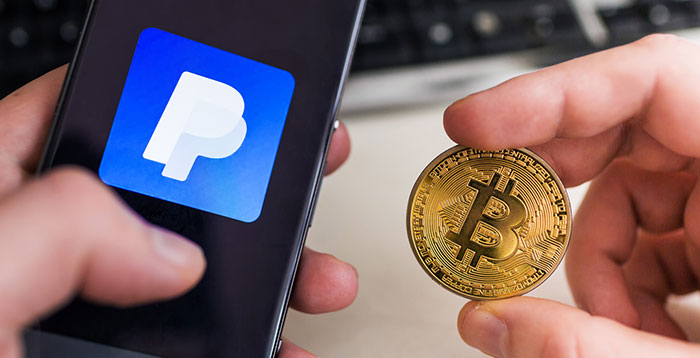on the crypto

PayPal's new crypto functionality
The point on which a lot of criticism has been focused is that the new service does not allow the withdrawal or deposit of bitcoin or other cryptocurrencies. Once purchased, the currencies remain in the buyer's account until they are sold.
“At the moment, you can only keep the cryptocurrencies you buy on PayPal in your account. Also, cryptocurrencies in your account cannot be transferred to other accounts inside or outside Paypal, ”states the PayPal FAQ section published alongside Wednesday's announcement. Many are of the opinion that while PayPal didn't need to impose such restrictions, it probably preferred to take things step by step.
Meeting the needs of the average user
The lack of withdrawals and the inability to transfer cryptocurrencies between accounts was "the highlight of PayPal news" for Jake Chervinsky, general consultant of the DeFi Compound platform, who added that such restrictions are not necessary for regulatory compliance.
However, it may be the case that PayPal is simply setting out to meet what it perceives as the needs of the average user, speculated Jerry Brito, executive director of Coin Center, a Washington, DC-based think tank.
According to Charles Hayter, CEO and co-founder of the CryptoCompare site, providing the simplest path for people to expose themselves to an asset class without necessarily getting into the more complex issues like using private keys or understanding cryptography and digital signatures is likely what which PayPal is thinking about.
PayPal is on the safe side
Coin Center's Brito agreed that to comply with regulations, PayPal didn't need to be so restrictive, but pointed out that there are gray areas like the Financial Action Task Force's travel rule and other anti-money laundering (AML) application areas. that come into play when transferring cryptocurrencies in a regulated environment.
"It's certainly true that it's a much bigger obstacle to allow cryptocurrency to be sent than not," Brito said. “Many are finally developing solutions to be compliant in this respect, but there are not yet. This takes up a relatively small portion of PayPal's business, so the simplest thing to do is not commit to the transfer and take the risk of compliance. "
Stephen Palley, a partner at Anderson Kill law firm, said the most important part of PayPal's announcement isn't the functionality itself, but what transpires about the asset class.
“They will be cautious and implement it slowly,” Palley said, adding, “My conclusion is that the most important thing is not functionality. The importance comes from the normalization of the asset class. If PayPal is saying that you can somehow use it through their platform, however it works, this is a step up from the idea that it is only for criminals. "
